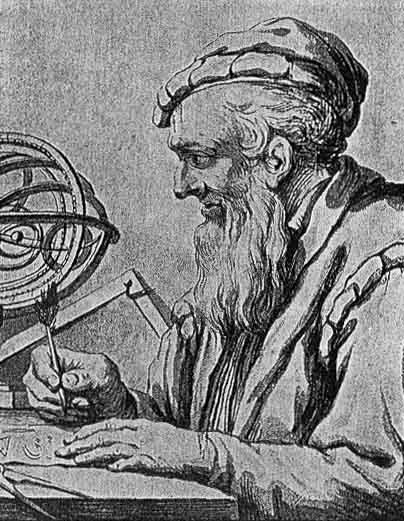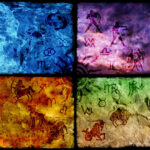
The main purpose of this text is to clarify certain details related to asking a specific question to which we get the answer by the method of horary astrology. This is also a good opportunity to look at the considerations before judgement that are traditionally taken into account in these interpretations.
First a few words about horary astrology herself. Horary astrology is a branch of astrology in which an astrologer provides answers to specific questions by making an astrological (horary) chart for the time and date when he learned (heard or read) and understood the question he was asked, as well as the place where he was at the time. The concept of the time and place of the astrologer is based on the idea that the thoughts of the client can be connected with the celestial spheres only through the medium, ie. the astrologer. This astrologer’s “mediation” is a precondition for the birth of a horary question without which it does not exist as such, but only as an ordinary question. Therefore, it is very important that the astrologer understands the question correctly, therefore the client’s question must be precise. Of course, the astrologer can ask for additional explanations when he deems it necessary, all in order to better understand what the client wants to know. This is really the key thing because it allows the answer itself to be concrete and precise, and it allows horary astrology to fully achieve its purpose as the most suitable astrological means of obtaining such answers. This is because the chart made for a given moment, describes the life of the thing demanded, the upheavals that will happen and the final outcome of the situation.
A chart made for a particular question provides enough information to answer the same, but only to that, and not to more than one question at a given moment. It is very important that only one question is asked at a time. The very essence of horary astrology is lost when asking more than one question in the same moment. The client can ask only one question at a time about a problem for which he needs a solution, putting it together precisely and honestly. It is also pointless to ask the same question several times. This limitation should not be taken literally, as additional questions can be asked but only if they are closely related to the main question. Additional questions that have nothing to do with the original question cannot be considered from the same chart. For example, it is wrong to first ask a question about marriage and then ask something about your career. Likewise, asking multiple questions in a row at almost the same time is irrelevant and cannot be interpreted. In practice, this usually happens through modern means of communication, such as messengers and the like, when questions are asked in a series. This is not acceptable because, in principle, you are not focused on any of these issues in the right way, and the chart itself will often show that. This is something that refers to the so-called radicality of the question, but more on that a little later. In principle, the question should come as a product of your true interest in something, and that is the main feature of their importance! Some astrologers say that one should not answer trivial questions, but the final word on that belongs only to the client, since something can be extremely important to the client no matter how different it may seem to the astrologer.
Frequently asked questions by clients:
- “When will I get married?”
The chart gives the answer to this question if the marriage is possible within a reasonable time, the type of partner, and if it is judged that the marriage will happen, how it will unfold, in mirth and joy or otherwise. You don’t need to have a candidate to ask this question. If, on the other hand, you have someone in mind, it is more appropriate to ask question number 3, whether that person will be your spouse. The answer to that question may include the answer to the question of when the marriage will take place.
- “When will I find a job?”
This chart will show when this will happen, as well as the type of employment. If the answer is yes, the chart will also show the place: here, far away, abroad. For example, if you would ask: “Will I get a job in a laboratory or a bank?”, then, you have to properly formulate the question and explain it to the astrologer. If the question is honestly asked, the chart will reveal whether the employment will occur and whether it is bookkeeping or engineering work. These jobs may or may not be in the companies you mentioned. But, to the question: “Will I get a job in specific bank, you will get the most precise answer.
- “Will I marry X?”
This question is possible if you are in love with person X, but, then again, if you ask: “Will I marry X, Y or Z?”, having three people in mind, no astrologer will be able to clarify that mess.
- “Will I marry X?”, “Can I avoid it?”, “Will I buy a house and when?”
As already mentioned, when it comes to a group of questions, the chart cannot give an answer to any of them.
- “Should I go for surgery?”
All issues of a medical nature are particularly sensitive, so it is necessary to present as many details as possible about the disease itself, since in these considerations the chart is approached in a slightly different manner. This applies to all health issues.
- “Am I under some spell, or bewitched?”
A question that is quite often encountered. The only special note here is that if you have someone specific in mind who you suspect might be harming you this way, someone who is in a special relationship with you (friend, relative, lover), it should be mentioned when asking a question.
- “Will I pass this exam?”
No matter how promising the horoscope and the answer based on it are, you still need to study 🙂
Considerations before judgement
And finally we come to a few rules concerning the so-called radicality of the question, which are primarily important to the astrologer himself in order to better assess how serious and sincere the question is. Many authorities such as Lilly and Bonatti, according to their own testimony, pointed out that they were asked certain questions that were designed only to test their knowledge, and that’s how some of these rules were created.

The primary indicators showing the lack of radicality of a question concern the ascending degree and the planet (ruler of the hour) of the horary chart. The ruler of the hour or the ruler of the ascendant located at the very end/beginning of a sign or at the boundary between two signs are the first hints indicating the lack of radicality of the question. Bonatti didn’t state precisely which degrees (out of thirty pertaining to every zodiacal sign) are to be taken as indicators showing the lack of radicality, but we may assume he had in mind the 29th, 30th and the 1st (ordinal) degree of every sign. There is one more possible interpretation of this rule, which originated because of the imprecise calculation of the ascending degree in 13th century, when Bonatti lived. The ephemerides and the tables of mundane houses were neither very precise nor reliable back in those days, especially in the case of signs of short ascension (Capricorn, Aquarius, Pisces, Aries, Taurus, Gemini). When these signs are concerned, the “sensitive” interval of ascension shift from one sign to the other is, in fact, between the 26th of the preceding and the 5th degree of the following sign. In the case of the signs of long ascension (from Cancer to Sagittarius) this sensitive interval is considerably narrower and is situated along the longitudes which Bonatti presumably had in mind when he mentioned them as indicators showing lack of radicality in a horary question. There is also a third kind of interpretation of the rule pertaining to the early/late ascending degrees and it concerns the observations that the question is too early/too late to be judged. This is not originally Bonatti’s idea. John Partridge, the English astrologer from the 17th century, was the first to explicitly assert that if the first few degrees of any sign are on the ascendant, the matter is not yet ripe for judgment. Several other English astrologers of this period, including John Gadbury and Henry Coley, interpreted the early/late degrees on the ascendant as indicators of “knavery and stupidity of the querent” and the absence of spontaneity. Gadbury, for instance, interpreted it as a hint that the querent had already posed the same question to some other astrologer and is now only testing the current one. Coley suggests the same, whereas Partridge thinks that only the late degrees rising convey such a message. This leads us to another consideration which stresses the necessity of posing a particular question only once, which means that there’s only one horary chart relevant for a particular question. By posing the same question more than once, the horary chart loses its focus, conveys contradictory information and becomes useless for proper judgment. William Lilly, specifically, interpreted the late ascending degrees as a potential indicator of the querent’s age, when, in the case of a match between the querent’s age and the number of the late degrees ascending, the degrees ascending may be taken as an indicator of radicality (and not of the lack thereof, as is suggested in the writings of the majority of the older authorities on horary).
The situations of uncertainty regarding the sign ascending Bonatti used to solve by taking the ruler of the hour into account. If, for instance, the ascendant falls between Pisces and Aries, and Jupiter rules the hour, he chooses Pisces because of the domicile rulership of Jupiter in this sign.
Another, very important rule about radicality is the comparison between the ruler of the hour and the ruler of the ascendant according to planetary/triplicty affinity and according to the sign on the ascendant.
One of the more popular considerations of radicality of the question, first mentioned by Claude Dariot (a lesser known astrologer from the 16th century) is the rule about the condition of the 7th house which is, most probably, deduced from the XIV aphorism of the pseudo – Ptolemy’s Centiloquium which reads: ”The astrologer plunges himself into many errors, when the cusp of the 7th house and lord thereof are unfortunate or afflicted.”. This is also one of the Lilly’s considerations which he wrote down in his “Christian Astrology”. Beside this 7th house rule, Lilly also took into account two rules laid out by Bonatti (early and late degrees on the ascendant and the hour ruler of the question), then the rule about the affliction of the Moon in the late degrees of a sign, especially when in Gemini, Scorpio and Capricorn, Vacua cursus (Void of course of the Moon) and other relevant significators, which implies the absence of the applying aspect before the change of a sign, or, up to 5 degrees in the following sign, as well as the position of the Moon in the Via Combusta (burned path) between the 15th degree of Libra and 15th degree of Scorpio. After the assessment of the conditions of the Moon, important consideration indicating the lack of radicality contained the condition of Saturn, especially if it is retrograde and placed in the 1st mundane house, near the ascendant. The ruler of the ascendant combust, as well as the equality between negative and positive testimonies in a horary chart are the rules Lilly also mentions regarding considerations before judgment.
This all seems like a fairly comprehensive list for rejecting interpretations. Some authorities, such as John Frawley, do not pay special attention to it, treating them as excuses. He only considers the rule of late and early degrees of Asc, but more for practical reasons, because if we do not know the degree of the Asc, we may be working with a completely wrong significator. But today, with precise computer calculations, this consideration also seems to have lost its importance. Nevertheless, I believe that these considerations can be an interesting indicator about the question itself, because these rules can provide very useful information about the attitude of the client towards a given situation or the circumstances that affect the final answer.
At the very end of this lengthy text, it should be concluded that the matter is essentially very simple. You need to turn to astrologer when you really sincerely want to know something, when a certain problem really bothers you and you want to ask an astrologer for advice. Bonatti even stressed, almost obsessively, the need for profoundness and contemplation regarding any horary question. The point is that you are serious and honest when you turn to an astrologer, because in that way you will also invoke the “favor of heaven” and get the proper answer.
Excerpt taken from the article “Considerations before judgement”, author: Nataša Karalić Koprivica. Link

No comment yet, add your voice below!